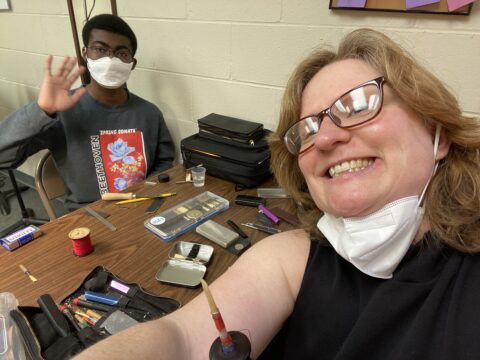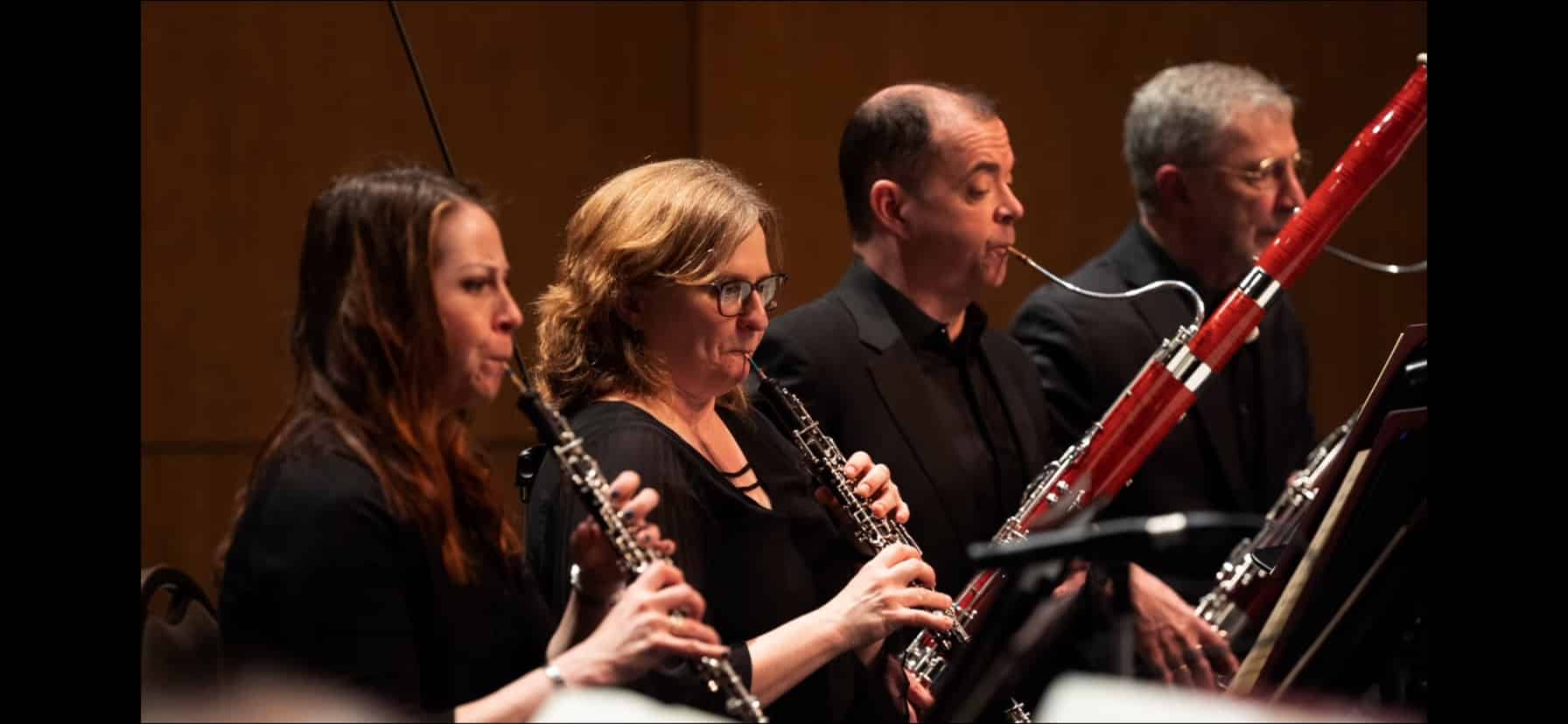Erica Anderson’s approach to classical music is personal. She says, “It’s about finding your voice and putting your voice into the music that is given. You are being yourself, and you get to be the most authentic self you want to be in music, and that should be accessible to anyone who wants it.”

Lora Schaefer, Denise Allen, Erica, Zach Allen when Zach got to meet and play for Riccardo Muti
Erica is an oboe teacher with CMPI who also teaches in the suburbs of Chicago and at the Music Institute of Chicago. After her years of study in completing an undergraduate degree in music at Eastman, she moved to Chicago to play with the Civic Orchestra of Chicago, and eventually received her master’s degree at DePaul University. Ultimately, Erica discovered that teaching was her passion and has found great success through her over 22 years of experience as a teacher.
Originally, Erica was on a path to become an orchestral musician, but says that she knew in a deeper part of herself that this wasn’t the ultimate fulfillment she needed. “You have to listen to your inner self.” Now she knows that she does in fact love playing with orchestras, but not in a full-time capacity. She plays with a number of ensembles, including Music of the Baroque, Quintet Attacca, and the Chicago Philharmonic. Her high level of playing is reflected through the excellence her students portray.

Making reeds with Zach
Erica notes that early on in her teaching career, she knew what kind of teacher she didn’t want to be. She didn’t want to motivate her students through fear or guilt; instead, she wants her students to reach their full potential helped by her wholesome support. Erica laughed after saying, “I plan to teach into my 80s and hopefully 90s!” To express the joy Erica finds in teaching, she explains that when she doesn’t teach for a few days she finds that she is grumpy in the anticipation of the next lesson. Her approach is simple, “I want to be the teacher that that kid needs, that’s how I approach every student in my studio.”
As the private oboe teacher of three students in our current CMPI cohort, Erica has an intimate understanding of our program and the individualized experience of each student. She says that for students accepted into CMPI, “you got a fairy godmother, this opens up opportunities that you deserve.” As a CMPI teacher, Erica is taking part in opening up those opportunities for our students, but she notes that it is an exchange of respect and care. “My CMPI kids are givers and I do the same. They are kind to me. I’m their oboe mom.” She jokes that one of her highlights in CMPI this far was a weekend where all of her students fed her before and after their lessons. “Achievement unlocked!” She is grateful for the love that she receives from her families, and is intentional about sharing that love and care back. Erica says that her CMPI kids are special in that they all come to her truly “wanting to do this!” They are committed to the work and to receiving feedback, which leads to effective teaching.
An important emphasis from Erica specifically for young musicians is that, “mental health is so important as a musician because it is such a mental and psychological path to take.” She wishes that she would have had access to mental health resources at a younger age, and encourages others to prioritize their mental health as well. Speaking on the topic of perfectionism, “It’s okay to be a perfectionist, but sometimes you just need to be good enough. When I try to be good enough I do very well. When I try to be perfect, that’s when I’ll choke. ‘Just be good enough’ is my mantra.” She frames this in the context of feedback as well, saying, “Perfectionists are hard on themselves and when they hear ‘do your best,’ they have to achieve the top of the line every time.” In her approach, a change of perspective or mindset can help ease the burden of perfectionism, while finding musical excellence in a wholesome way.
The conversation concludes with Erica emphasizing the importance of a strong foundation and support, “It is about setting up a foundation to sound good. We all get it our own way, and I try to clear out the path.”
Images
Lora Schaefer, Denise Allen, Erica, Zach Allen when Zach got to meet and play for Riccardo Muti
Making reeds with Zach
Playing with Music of the Baroque (Anne Bach, Erica, Bill Buchman, Lewis Kirk)
Photo credits to Eliot Mandel
